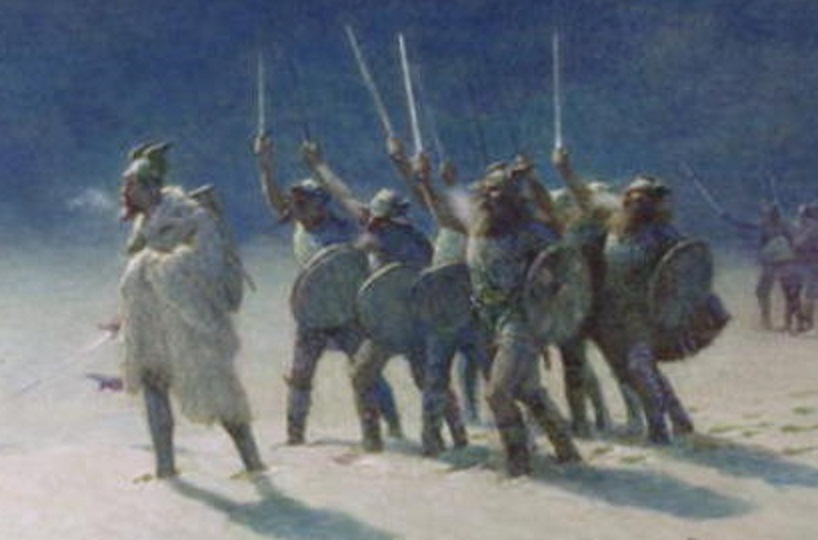A friend recently asked an interesting question: In history, why does someone who already has power go conquering? Why does a lord need more power? Here’s my answer:
-

Henry Kissinger got lots of sex — despite being chubby, homely, and not too young — and he put it best: “Power is the ultimate aphrodisiac.”
Sex & Natural Selection: A powerful man gets to sleep with lots of women. So men who seek power, and succeed, father more children, leading to natural selection favoring the power-hungry. We really don’t need another explanation, at least for power-hungry men: evolution has embedded it in our genes. And our genes don’t recognize a “point of diminishing marginal returns,” after which more sex isn’t worth the bother. Genghis Khan and his sons, for instance, fathered so many children that 8% of modern Asians carry their Y chromosome, according to some researchers. As history’s most successful conquerors, the Mongol rulers had the power to sleep with mind-boggling numbers of women, and they did.
- Power is Money: Through most of history, the only way to increase wealth quickly was to take it from other people, by force. That’s how Julius Caesar got rich, to take one of countless examples. He rose from debt-ridden politician to ancient Roman gazillionaire in a few years, by conquering and pillaging Gaul. Of course, today you’re more likely to get rich through commerce than by joining the military. But modern economies are unusual. Commerce didn’t offer a reliable route to riches until the last few centuries.
- Sadism: In past times, people were more eager than now to injure, rape, maim, and murder. (See my post: The Least Violent Time Ever? Now.) And conquest provides lots of outlets for our sadistic urges.
-

Are these Vikings following their lord into battle — or threatening to kill him if he doesn’t fight?
Restless Underlings: Maybe some lords nevertheless felt they had enough power and would’ve preferred to take a pass on conquest. But what about the men (and women) under them, and their desire for wealth and power? If a Norse earl, for instance, didn’t lead raids or conquests, the eager Vikings under him might replace him — and not at all gently.
- Restless Neighbors: We often imagine conquerors’ victims innocently minding their own business until invaders rampaged across their lands. That’s just wrong. Conquered people were usually potential conquerors themselves, or at least raiders. So subduing them was good risk-management. The Scots, for example, will never forgive the English for conquering them during the Middle Ages. But incessant Scottish raids actually triggered the English invasions as much as anything else. Even World War I began as a defensive struggle. The Russians and French thought the Germans and Austrians were about to invade, and vice versa, so they all started shooting.
Yes, much of this reasoning is circular: the need for power triggers the need for power. That’s why the cycle’s so hard to break.
Illustrations:
- Henry Kissinger in 1976, from the Dutch National Archives, provided through Wikimedia Commons
- The Ravager (1906), by John Charles Dollman — cropped
© 2015 by David W. Tollen. All rights reserved.

Great answer! A couple years ago read a book first published in Germany in 1911, called Germany and the Next War. He wrote about the Need and the Right of conquest…basically, we have heaps of people and we can’t provide for them all w/ our current borders, neighbours have huge borders and few people, so we have the right to take that land to benefit the greatest number of people.
There was also the old bit about how war brings out the best–duty, honour, sacrifice, etc, instead of the soft traits of peace.